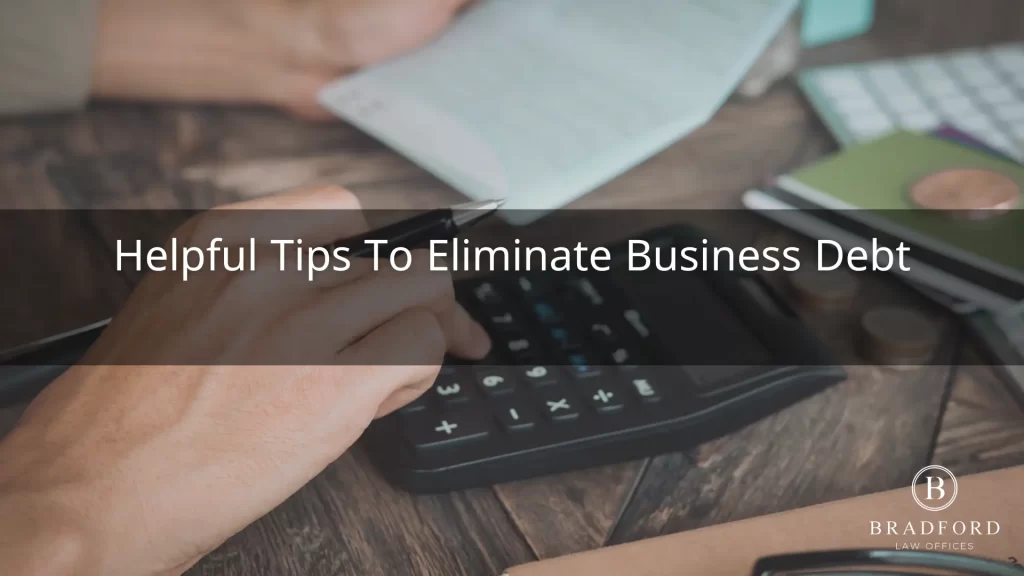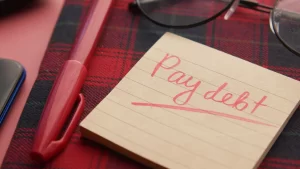
Operating a business is difficult and stressful, especially when the bills start rolling in and you do not have enough revenue to cover them. Whether you relied on loans, credit cards, or personal debt to get your business going or keep it afloat, paying back the debt is likely your number one goal. However, if you are struggling to pay back that debt, there are several ways you can manage business debt and get your business back on track.
Rework Your Budget
To determine how to tackle your business debt, you need a good understanding of your business’s financial situation. Assessing your financial situation is necessary for forming a plan to eliminate your business debt.
Reduce Your Operating Expenses
When starting and operating a business, it’s easy to identify tools, services, and products that will help your business function more efficiently. Most of the time, these tools, services, and products make things a little simpler but are not necessary for the operation of the business and can be cut from your expenses until your debt is eliminated and your company is back on track financially.
For example, you may be able to get rid of or downgrade your business phone plan, cleaning services, automated social media posting services, etc. Looking carefully at your financial records can help you identify your unnecessary expenditures.
Streamline Your Debt
Businesses usually have multiple forms of debt, including loans and credit card debt, which requires the company to keep track of multiple payments and varying interest rates. Consolidating your debt with a lower average interest rate can help you avoid unnecessary fees and make your payment schedule more manageable.
 Boost Your Profit Margin
Boost Your Profit Margin
Whether you have personal or business debt, there are only a few ways to get out of debt without turning to the legal system: spend less money or make more money. However, if you have tried everything else and are still dealing with a mountain of debt, you can attempt to eliminate the debt by increasing your margin. You could try changing manufacturers to reduce the cost of your products or increasing your prices if possible.
Apply for a Hardship Plan
The U.S Small Business Administration will make small, low-interest, long-term loans to certain private businesses facing hardship. If you are in debt because of damage to your business property or some qualifying disaster, you may be eligible for a hardship loan. Those eligible for the loans must show that they can recover from the hardship and repay the loan. To do this, the loan underwriters may require financial records, such as balance sheets and tax records.
File for Bankruptcy
If you are considering filing for bankruptcy because you are struggling with business debt, you have some options. The following bankruptcies are available for businesses to use to recover from debt:
Chapter 7: A Chapter 7 bankruptcy is known as liquidation bankruptcy because it is used when restructuring the business is not viable. This is usually only available to companies that do not have substantial income. The attorney at Bradford Law Offices will review your financial situation and determine if this is a good option for you and your business.
During a Chapter 7 bankruptcy, the company’s assets will be sold and used to pay off the creditors. The company will be dissolved in this bankruptcy process, so Chapter 7 is only a good idea if you no longer want to operate your business.
Chapter 11: A Chapter 11 bankruptcy is known as a business reorganization bankruptcy because it allows the company to continue to operate. To qualify for this bankruptcy option, you must show that your company will become solvent at some point in the future. During a Chapter 11 bankruptcy, you and your experienced attorney will draw up a plan to repay creditors over a specific period. The court must approve this plan. Failing to abide by the repayment plan can result in you returning to court to review your case.
If your business has substantial assets and you believe it will be able to recover from its current financial predicament in the future, this may be the right option for you and your business.
Chapter 13: A Chapter 13 bankruptcy is reserved for individuals and sole proprietors with a regular income. The goal of a Chapter 13 bankruptcy is similar to that of a Chapter 11 bankruptcy because you will file a repayment plan and maintain your company.
Contact Us Today
If you are struggling with keeping up with your business debt, contact Danny Bradford from Bradford Law Offices to discuss your legal options. Our Raleigh business bankruptcy lawyer has more than 25 years of legal experience, and we are ready to use that knowledge to help you determine the next step for tackling your business debt. Call Bradford Law Offices today at (919) 758-8879 or contact us online for a consultation.
 Boost Your Profit Margin
Boost Your Profit Margin